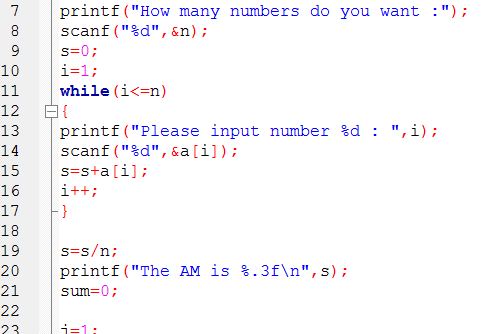|
|
C / C++ Language
C / C++ Language
C is a general-purpose programming language with features economy of expression,
modern
flow control and data structures, and a rich set of operators. C is not a ''very high level''
language, nor a ''big'' one, and is not specialized to any particular area of application. But its
absence of restrictions and its generality make it more convenient and effective for many tasks
than supposedly more powerful languages.
C was originally designed for and implemented on the UNIX operating system on the DEC
PDP-11, by Dennis Ritchie. The operating system, the C compiler, and essentially all UNIX
applications programs (including all of the software used to prepare this book) are written in
C. Production compilers also exist for several other machines, including the IBM System/370,
the Honeywell 6000, and the Interdata 8/32. C is not tied to any particular hardware or system,
however, and it is easy to write programs that will run without change on any machine thatsupports C.
C / C++ Language
C++ is a general purpose programming language designed to make programming more enjoyable
for the serious programmer. Except for minor details, C++ is a superset of the C programming language.
In addition to the facilities provided by C, C++ provides flexible and efficient facilities for
defining new types. A programmer can partition an application into manageable pieces by defining
new types that closely match the concepts of the application. This technique for program construction
is often called data abstraction. Objects of some userdefined types contain type information.
Such objects can be used conveniently and safely in contexts in which their type cannot be determined
at compile time. Programs using objects of such types are often called object based. When
used well, these techniques result in shorter, easier to understand, and easier to maintain programs.
The key concept in C++ is class. A class is a userdefined type. Classes provide data hiding,
guaranteed initialization of data, implicit type conversion for userdefined types, dynamic typing,
usercontrolled memory management, and mechanisms for overloading operators. C++ provides
much better facilities for type checking and for expressing modularity than C does. It also contains
improvements that are not directly related to classes, including symbolic constants, inline substitution
of functions, default function arguments, overloaded function names, free store management
operators, and a reference type. C++ retains C’s ability to deal efficiently with the fundamental
objects of the hardware (bits, bytes, words, addresses, etc.). This allows the userdefined
types to be implemented with a pleasing degree of efficiency.
C++ and its standard libraries are designed for portability. The current implementation will run
on most systems that support C. C libraries can be used from a C++ program, and most tools that
support programming in C can be used with C++.
There are many websites which will help you to learn C and C++ language :
||
||
||
|
27 - June - 2025
Day : Friday
|
